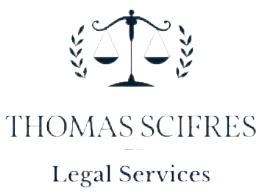Mass tort cases present unique challenges and complexities that require careful evaluation and analysis. At Thomas Scifres Legal Services, we understand the importance of considering various factors when assessing the viability of a mass tort case. Here are some key considerations:
Nature and Scope of the Harm: One of the primary factors in evaluating a mass tort case is the nature and scope of the harm suffered by the plaintiffs. This includes the severity of injuries, the number of individuals affected, and the extent of damages incurred as a result of the alleged negligence or misconduct.
Causation and Liability: Establishing causation and liability is essential in mass tort litigation. It involves determining whether the defendants’ actions or products directly caused the harm suffered by the plaintiffs and whether they can be held legally responsible for the damages incurred. Expert testimony and scientific evidence often play a crucial role in establishing causation and liability in mass tort cases.
Strength of Evidence: The strength of the evidence supporting the plaintiffs’ claims is another critical factor in evaluating a mass tort case. This includes documentary evidence, witness testimony, expert opinions, and any other relevant evidence that supports the plaintiffs’ allegations of negligence or misconduct against the defendants.
Legal Precedents and Jurisdiction: Consideration of relevant legal precedents and jurisdictional factors is essential in assessing the viability of a mass tort case. Previous court rulings, settlements, and legal precedents in similar cases can provide valuable insights into the potential outcomes and challenges associated with pursuing a mass tort claim.
Damages and Compensation: Assessing the potential damages and compensation available to plaintiffs is a crucial aspect of evaluating a mass tort case. This includes compensation for medical expenses, lost wages, pain and suffering, punitive damages, and other economic and non-economic losses incurred as a result of the harm suffered.
Complexity of Litigation: Mass tort litigation often involves complex legal procedures, extensive discovery processes, and coordination among multiple parties, including plaintiffs, defendants, and courts. Evaluating the complexity of litigation and the resources required to effectively pursue a mass tort case is essential in determining its viability.
Conclusion: In conclusion, evaluating a mass tort case requires a comprehensive understanding of the unique factors and challenges involved. At Thomas Scifres Legal Services, we leverage our experience, expertise, and resources to thoroughly evaluate mass tort cases and provide our clients with strategic guidance and representation tailored to their individual needs and circumstances. With our unwavering commitment to advocacy and justice, we strive to achieve the best possible outcomes for our clients in mass tort litigation.

